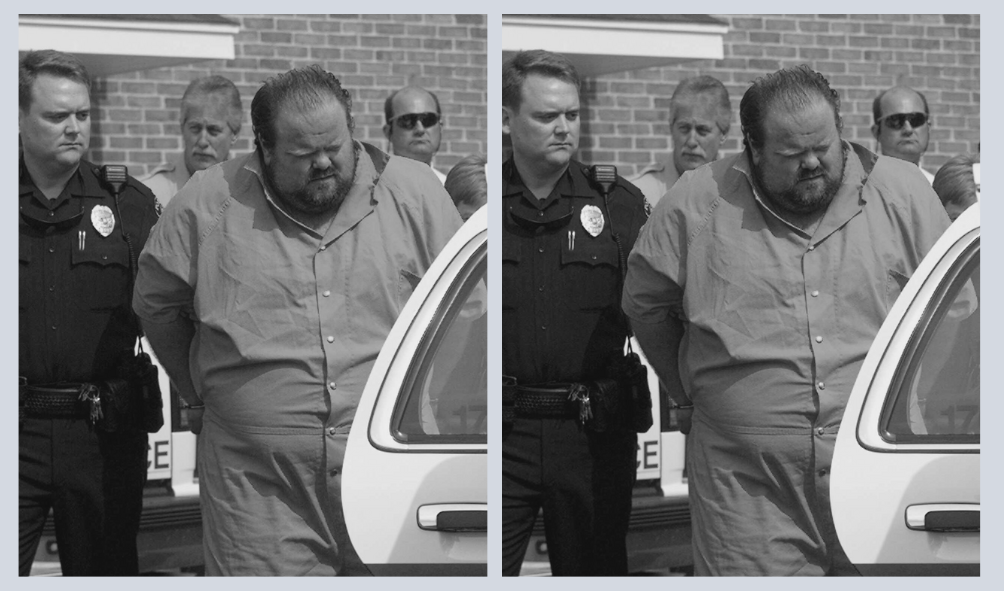Alan Eugene Miller, born on January 20, 1965, is a convicted murderer known for his brutal actions on August 5, 1999. He shot two co-workers, Lee Holdbrooks, 32, and Scott Yancy, 28, at their office, and then killed a third person, Terry Jarvis, 39, at a company where he used to work. Miller was arrested on the same day of the murders and was sentenced to death on July 31, 2000.

Table of Contents
Background and Motivation
Miller’s life took a dark turn early on. Born in Chicago, he was the middle child of seven, with two siblings having passed away. He suffered from head injuries from falls as a child and experienced continual headaches, which he treated with Goody’s powders. His family moved from Chicago to the Birmingham area when he was 7. Miller attended elementary schools in Birmingham’s West End, Midfield High School, and graduated from Trinity High School in Euless, Texas. After high school, he considered joining the military but was rejected due to his weight. Miller was described as a hard worker who kept to himself, with a history of fighting with fellow employees and being fired for fighting on the job. He was particularly angry with Lee Holdbrooks, another driver, over perceived preferential treatment in route assignments. Miller was also laid off from Post Airgas due to “economic downsizing”.
The Murders
On the morning of August 5, 1999, Miller entered the unlocked Ferguson building with his gun drawn. He shot Lee Holdbrooks and Christopher Yancy to death before fleeing the scene. He then drove to Post Airgas, where he had worked until January, and shot Terry Jarvis. Miller was apprehended after a high-speed chase on a nearby highway, shortly after police arrived at the shooting scenes.
Trial and Sentence
During the trial, Miller’s defense attorneys argued that he was mentally impaired and should be in a mental health facility rather than in prison. However, the Shelby County District Attorney disagreed and sought the death penalty. The jury found Miller guilty of capital murder and recommended the death penalty. Miller showed no reaction as the verdict was read. The defense described Miller as a “tortured soul” suffering from a personality disorder, but the prosecution argued that Miller wanted all his victims dead.
Execution Attempt and Legal Challenges
Miller’s execution was scheduled for November 17, 2022, but a federal judge granted an order prohibiting Alabama from executing him by lethal injection. Miller had chosen to die by nitrogen hypoxia, an untested and unproven execution method. The judge’s order stated that Miller would “likely suffer irreparable injury” if executed by lethal injection instead of nitrogen hypoxia. This case highlighted the controversy surrounding nitrogen hypoxia as an execution method, with critics arguing it has not been proven humane or effective.
What was the mental health condition that Miller claimed to have?
Alan Eugene Miller claimed to have a mental health condition that led him to plead innocent by reason of mental disease or defect. His defense attorneys described him as “at best, very slow” and suggested that he should be in a mental health facility rather than in prison. This defense strategy was based on the premise that Miller’s actions were not indicative of his true mental state but rather a result of a mental health condition.
During the trial, Miller’s defense attorney, Mickey Johnson, described Miller as a “tortured soul” who suffers from a personality disorder. A psychological evaluation conducted during the trial found that Miller believed he had been slighted by “perceived events.” This evaluation suggested that Miller’s actions were driven by a perception of being wronged, rather than by a clear intent to harm.
Johnson argued that Miller believed in the death penalty and thought he could impose it, indicating a possible misinterpretation of justice or a distorted sense of morality. This defense highlighted Miller’s mental state as a critical factor in his actions, suggesting that his mental health condition was a significant contributing factor to the tragic events of the workplace shootings.
Despite the defense’s arguments, the jury found Miller guilty of capital murder and recommended the death penalty. The Shelby County Circuit Judge Al Crowson accepted the jury’s recommendation, leading to Miller’s sentencing to death. This outcome underscores the complexity of mental health issues in the context of criminal law, highlighting the challenges in determining responsibility and the potential for mental health conditions to influence or exacerbate criminal behavior.
Conclusion
Alan Eugene Miller’s life and actions have been marked by a series of tragic events, from his early childhood injuries to his violent acts and the legal battles surrounding his execution. His case serves as a stark reminder of the complexities and ethical dilemmas involved in the justice system, particularly in the context of capital punishment.
Read Also | Steve Stoute Daughter: Who Are Isabelle And Carol? Net Worth And Family Details









